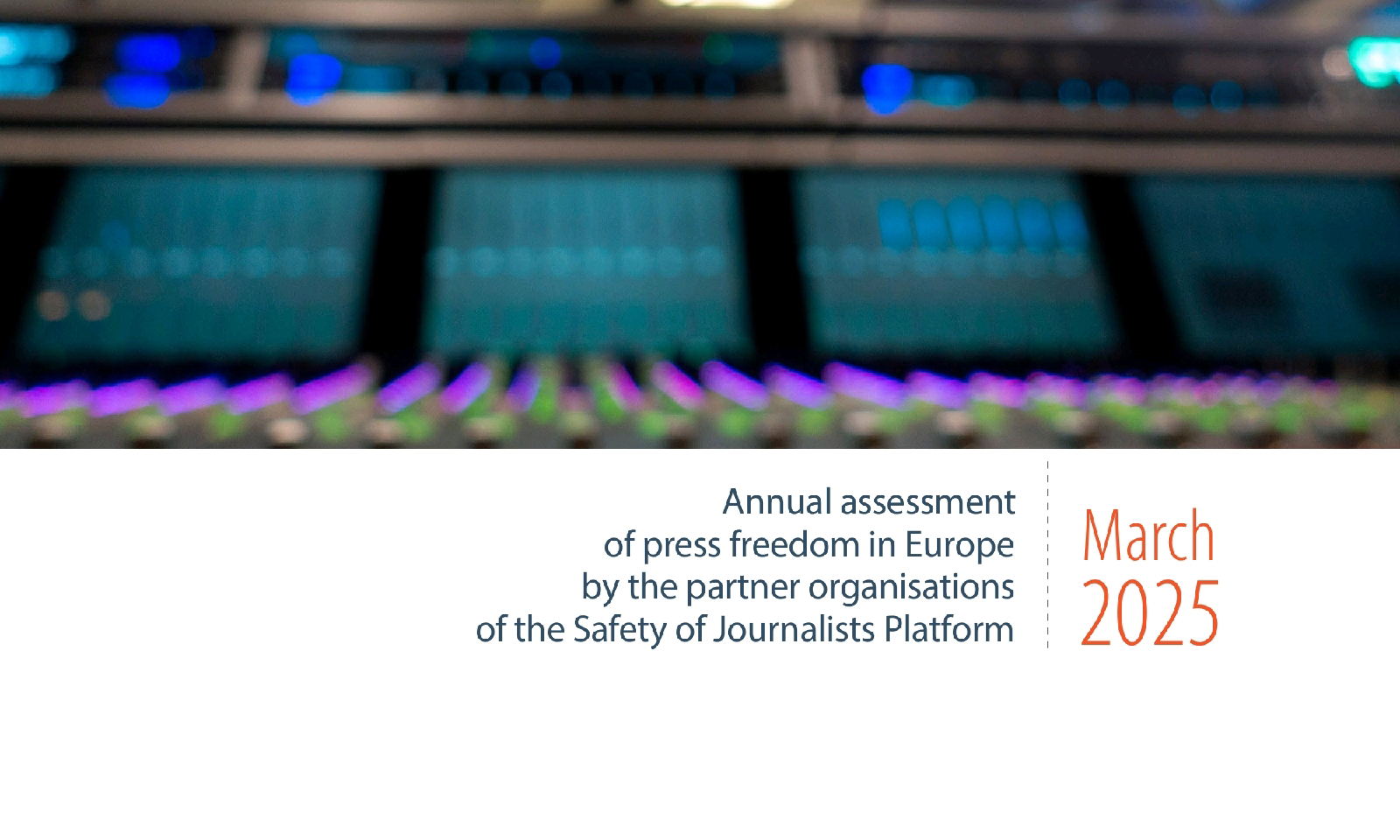The war in Ukraine remained the most pressing concern in 2024, as Ukrainian and international journalists risked their lives daily on the front lines. Media professionals, like other civilians across the country, endured the constant threat of Russian bombardments. The essential role of the media in covering conf licts was further challenged by press freedom violations amid the ongoing crisis in Gaza, the West Bank, and the wider Middle East. ■The results of numerous elections in Council of Europe member states, at the European level, and in the United States revealed a growing influence of illiberal and populist parties. These parties, often hostile to critical and public interest journalism, displayed this through derogatory rhetoric, legal constraints on media, and regulatory interference that undermined public service broadcasters. ■Within Europe, this report documents extensive abuses, highlighting the urgent need for wide-ranging legislative and practical reforms. ■SLAPPs and legal challenges: 2024 saw positive developments, such as the adoption of the Council of Europe’s Recommendation on countering Strategic Lawsuits Against Public Participation (SLAPPs); the European Union’s enactment of the European Media Freedom Act (EMFA); and the adoption of the EU anti-SLAPP Directive. These measures have fostered a more favourable environment for protecting press freedom and ensuring journalists’ safety, however, implementation at the national level remains inconsistent and, in many cases, has yet to commence. ■Surveillance and source confidentiality: spyware poses a growing threat to journalists’ safety and source confidentiality. Surveillance remains pervasive and difficult to detect. ■In addition to domestic pressures, the threat of transnational repression has grown, with exiled journalists increasingly facing surveillance, harassment, and intimidation from their home countries. The Platform documented several cases where journalists in exile were targeted through digital surveillance, threats to family members, and legal action designed to force their silence. ■Some governments increasingly target exiled journalists through misuse of international legal instruments like Interpol ‘red notices’, undermining press freedom globally. The Platform partners have called for urgent reforms to address these abuses and ensure that host countries provide adequate protections, including expedited asylum processes and enhanced security measures for at-risk journalists. Efforts to combat transnational repression also gained traction, with increasing recognition of the need for international mechanisms to protect exiled journalists. ■Media capture: State and political parties’ control over media - through regulatory interference, ownership manipulation, and financial pressure- remains a widespread concern, undermining press freedom and pluralism. To counter this growing threat, urgent measures are needed, including greater transparency in media ownership, stronger legal safeguards to prevent undue influence, and independent regulatory bodies to uphold editorial integrity and ensure a diverse media landscape. ■Public service media remained a battleground for independence as some governments continued to exploit regulatory and financial levers to exert control. From underfunding initiatives to outright interference in editorial independence, these tactics have weakened public trust in media institutions. The European Media Freedom Act offers hope for reversing this trend, but effective implementation by member states will be critical in ensuring the sustainability of pluralistic and independent media ecosystems. ■Technological advancements, particularly in artificial intelligence, have introduced new risks to press freedom. AI-generated disinformation campaigns, deepfake videos, and automated harassment are increasingly being used to discredit journalists and erode public trust in media. ■2024 highlighted the first documented cases of AI-generated disinformation campaigns targeting journalists directly. As these technologies become more sophisticated and easily accessible, the role of journalism in combating disinformation and verifying facts becomes even more crucial. Policymakers will have to include AI governance in broader media protection strategies.In response to all these challenges, press freedom groups and journalists’ organisations have intensified their campaigns to safeguard journalism and democratic values. They call on member states of the Council of Europe to uphold their commitments and adhere to international agreements, including the European Convention on Human Rights, and to implement reforms that guarantee media independence and pluralism. ■While 2024 highlighted pressing challenges to press freedom, it also demonstrated resilience and collective action. Advocacy efforts, legal reforms, and international cooperation offer hope for sustaining independent journalism. As the Safety of Journalists Platform marks its 10th anniversary, it underscores the importance of coordinated action to protect media freedom.

Yorumlar
Yorum Gönder